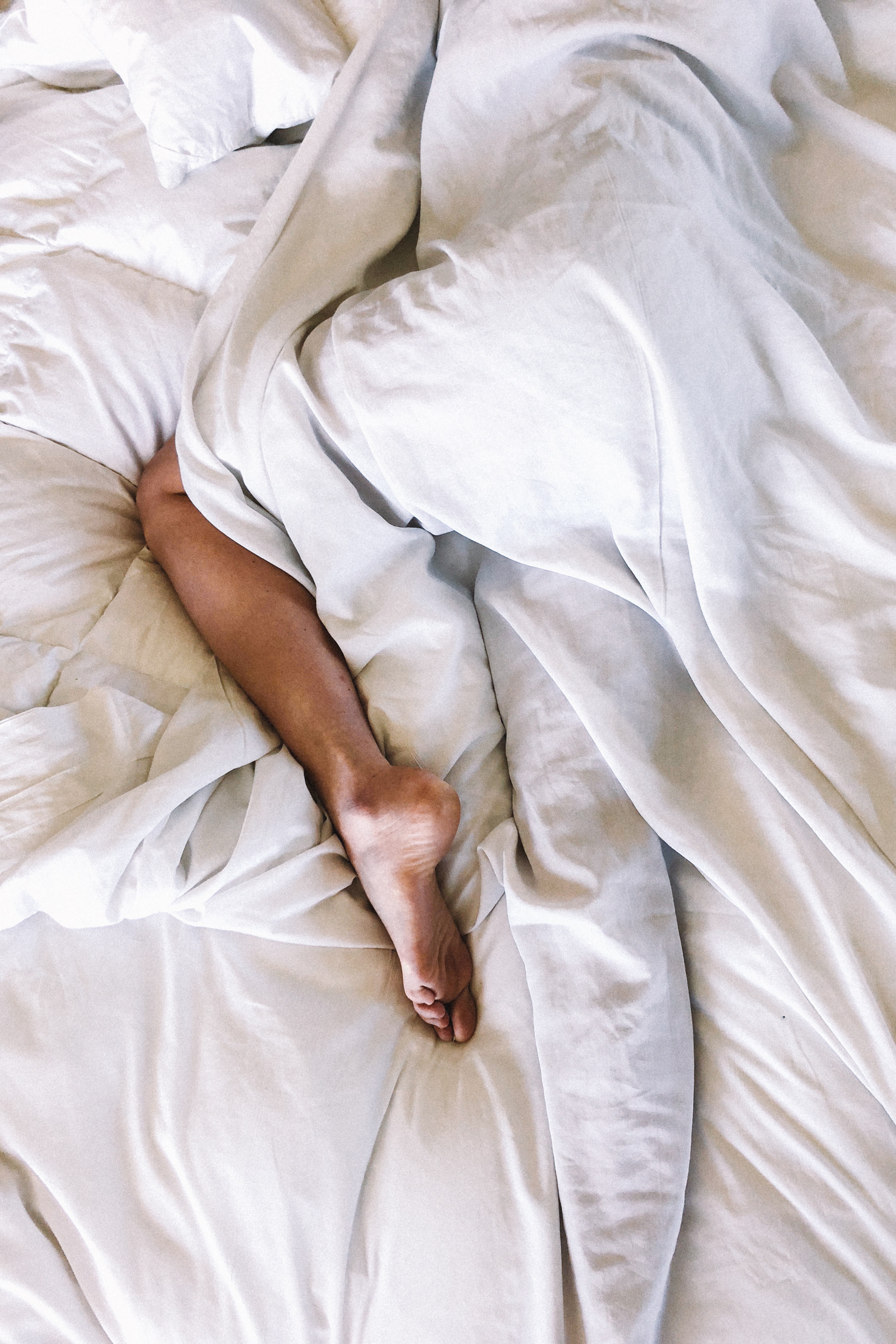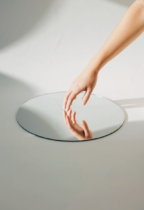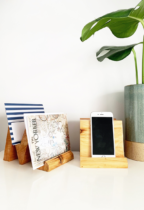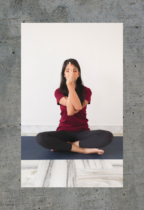
Do you remember the last time you got 8 hours of sleep? I recently managed 8 hours – only took me 3 days, but hey, at least I got there!
Do you, like me (and 51% of the world), never seem to get enough sleep? Is your sleep pattern so whacked that you might as well be living in a different time zone? Also, is the mythical 8 hours of uninterrupted sleep really that important?
Turns out it is. A good night’s sleep is the cornerstone of a healthy lifestyle. Sleep deficiency has immediate negative effects on our hormones, exercise performance and brain function. Moreover, it’s also linked with increased chances of heart disease, obesity, high blood pressure, and diabetes.
But don’t just take my word on it: think back to the last time you were out partying till dawn or Netflix-ing until it was time to get ready for work. Were you as productive, alert, or happy as your usual self?
In contrast, a night of deep restorative sleep makes you healthier and happier, keeps your cortisol in check, and supports physical health too. While currently it may seem almost impossible to get the coveted 8 hours of sleep, with just a few lifestyle changes, sleeping well could be your dream come true.
Here are our tips on how you can improve your sleep hygiene habits, and in turn vastly improve the quality of sleep you get every night.
Let the light be with you
Our body has a natural time-keeping clock called the circadian rhythm, which affects our brain, body and hormones, and tells us when it’s time to sleep. Exposure to natural sunlight, or bright light helps keep the circadian rhythm healthy and improves daytime energy.
And while exposure to light during the day is beneficial, nighttime light exposure has just the opposite effect. It tricks the brain into thinking that it’s still daytime, which in turn reduces production of the sleep-inducing hormones (Melatonin) in our body. Blue light – largely emitted by electronics like smartphones and computers – is the worst in this regard, and the most common source of nocturnal light exposure.
There are several tricks that can be used to reduce nighttime blue light exposure. These include wearing glasses that block blue light, or installing apps on devices to block it; but most effective is to stop using your devices, and turning off any bright lights at least 2 hours before bedtime. When we dim the lights and avoid using laptops, tablets and cell phones, it automatically signals to our body clock that it’s time for bed.
Be mindful of what and when you eat
We lose sleep over so many little things, that the last thing we need is our late-night dining decisions working against us. Consuming caffeine late in the day is ill advised, since a single dose is known to enhance focus, energy and performance. While these are traits that we might find helpful to start our day, when consumed later, this stimulus to our nervous system stops our body from naturally relaxing at nighttime. Because caffeine can stay in the blood for 6-8 hours, switch to drinking decaf after 3-4 pm.
Apart from coffee, consider avoiding alcohol (increases/causes symptoms of sleep apnea, snoring and disrupted sleep), high sugar foods such as ice-cream, candy, etc. (sugar pumps the body full of energy, hence hindering relaxation) carb-loaded and greasy food such as burgers, pasta, pizza, etc. (they play with blood sugar levels, and may cause heartburn.)
If you do feel peckish and it’s after dinnertime, bananas and almonds (high in magnesium which helps the body relax), honey (releases melatonin), oats (promotes melatonin, and naturally raises blood sugar) are all recommended late night snacks. Drinking chamomile tea before bed enhances the sleep quality as it contains antioxidants that promote sleepiness. It also helps reduce anxiety and depression, which are commonly associated with sleep problems.
Naps might not be your friend
Are you in the habit of napping during the day? While shorter naps (30 minutes or less) may be good for us, long or irregular naps may have a negative effect on our sleep, as sleeping at daytime confuses our internal clock and cause problems at night.
Your sleep environment matters
Our bedroom environment plays a paramount role in getting a good night’s sleep. A quite, relaxing, clean, and enjoyable space can optimize quality sleep. External noise, excessive light, clutter, or too hot or cold temperatures can cause poor sleep and long term health issues. Additionally, our bed, mattress and pillows can also impact sleep quality, which is why high quality mattresses and pillows are so coveted.
Make the bedroom a clutter-free sanctuary where you can actually relax, and optimize sleep by using clean sheets, investing in blackout curtains, or look into getting a weighted blanket. Create the right relaxation mood with a scented soy candle or diffuser. It’s also recommended to keep devices outside the bed – use the bed only for sleep (or sex) – leaving work, emails, etc. outside. This is so that our brain associates the room with sleep, making it easier to do just that.
A soothing nighttime routine
Many people have a pre-sleep nighttime routine that helps them relax, and it’s highly recommended. Relaxation techniques before bed have been shown to improve sleep quality, and the act of following a routine every single night trains the mind and body to shut down for sleep at the allotted time.
The routine may include listening to music, reading a book, taking a hot bath/shower, meditating, doing bedtime yoga (only asanas that are recommended for sleep), massages, deep breathing or anything else that may work for you. This is extremely personal and what works for one person might not work for the other. Check out our post on how to create a nighttime routine that works for you.
Supplements and Oils
Incase the above techniques don’t work, you might consider adding supplements. Melatonin supplements are the most popular sleep aid. Other supplements include Ginkgo biloba (A natural herb with benefits that aid in sleep, relaxation and stress reduction), Valerian root (helps you fall asleep and improve sleep quality), and magnesium. You can also try adding adaptogens to your nighttime tea, as some of them are known for relaxation and inducing sleep.
Additionally essential oils are also a great natural alternative as they can provide relief for disrupted sleep. Lavender, Vanilla, Rose, Geranium and Jasmine are all effective for sleep. You can add a few drops of oil to your nighttime bath, buy or make your own mist, apply directly to a few pressure points in your body, dab onto your pillowcase, or use an oil diffuser. Using the oil for a massage is a good option too (make sure to mix it with a carrier oil), and a massage for or from your bed partner works wonders!
Take a deep breath, or 5
Meditation and deep breathing exercises are also effective to relax the body and mind, and in turn can help you fall asleep. Try yoga nidra, a yogic breathing exercise that will set you up for a good night of zzz’s.
Sleep disorder
Have you tried these tips already and still have problem sleeping? There may be an underlying health issue and it may be wise to consult your doctor.
The bottom line is that sleep plays a key role in your health – many chronic health issues can be tied to lack of sufficient or good quality sleep. Thus, getting good quality sleep should be a top priority for all of us. Old adages such as ‘sleep is for the weak’ is not a good motto to live by, and if there’s just one new habit you want to adopt to improve your health – start by getting deep, restorative, sleep.






